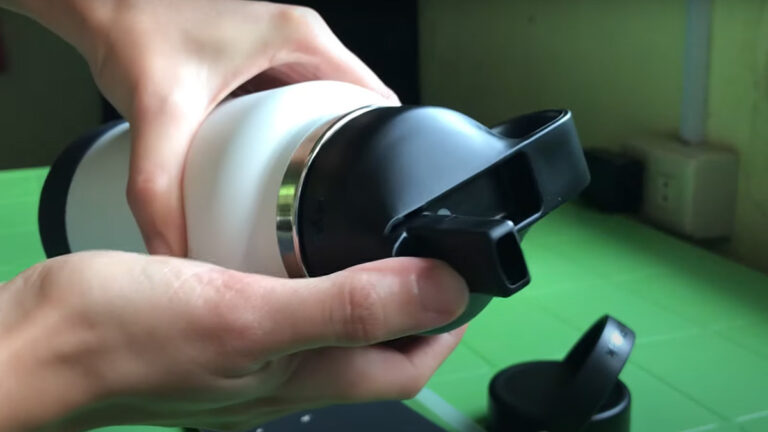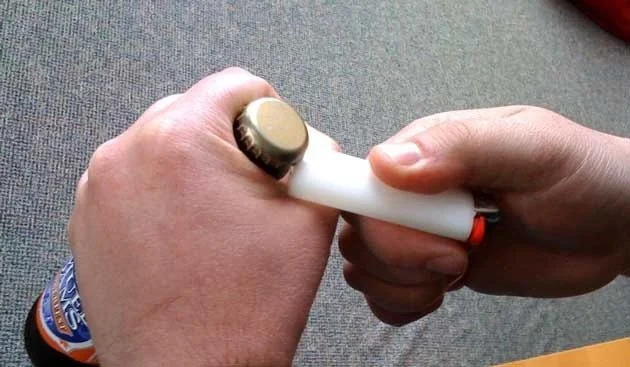The sensation of a soapy taste in the mouth
As someone who has experienced the unpleasant sensation of a soapy taste in my mouth, I understand how frustrating it can be. The taste lingers, affecting the enjoyment of food and drinks. If you’re looking for ways to get rid of this taste, here are some possible solutions to consider.
Causes of a soapy taste in the mouth
Before we delve into the solutions, it’s important to understand the potential causes of a soapy taste in the mouth. It can be a result of various factors, such as:
- Overuse of certain toothpaste or mouthwash: Some oral hygiene products contain ingredients like sodium lauryl sulfate (SLS), which can leave a soapy taste when used excessively.
- Certain medications: Different medications can affect saliva production or interact with taste receptors, resulting in a soapy taste.
- Gastroesophageal reflux disease (GERD): Acid reflux can cause stomach acids to flow back into the mouth, leaving behind a soapy taste.
- Hormonal changes: Pregnancy or hormonal imbalances can sometimes lead to changes in taste perception, including a soapy taste.
- Dehydration: Insufficient hydration can affect saliva production and alter taste sensations.
Now, let’s explore some solutions to help alleviate the soapy taste in your mouth:
- Switch toothpaste or mouthwash: Opt for products that are free from SLS or try natural alternatives.
- Stay hydrated: Drink plenty of water throughout the day to maintain proper saliva production.
- Adjust medication: If you suspect a specific medication is causing the soapy taste, consult your healthcare provider to discuss alternative options.
- Manage acid reflux: Follow a healthy diet, avoid trigger foods, and consider over-the-counter antacids or prescription medications.
- Practice good oral hygiene: Regularly brush your teeth, floss, and use a tongue scraper to maintain optimal oral health.
By incorporating these tips into your routine, you can take steps towards getting rid of that unpleasant soapy taste in your mouth and restore the joy of eating and drinking. Remember, if the problem persists or worsens, it’s important to consult with a healthcare professional for a proper diagnosis and treatment.
Good Oral Hygiene
As someone who has experienced the unpleasant soapy taste in my mouth, I understand how frustrating it can be. Luckily, there are several steps you can take to get rid of this taste and maintain good oral hygiene. Here are some tips to help you eliminate that soapy taste and keep your mouth feeling fresh and clean.
Proper brushing and flossing techniques
Brushing: Make sure you are brushing your teeth at least twice a day for two minutes each time. Use a soft-bristle toothbrush and fluoride toothpaste. Pay attention to your brushing technique, making sure to brush all surfaces of your teeth, including the gumline.
Flossing: Flossing is just as important as brushing. It helps remove food particles and plaque from between your teeth and along the gumline. Make sure to floss at least once a day, using a gentle sawing motion to get between each tooth.
Using mouthwash and tongue scraper
Mouthwash: Incorporating a mouthwash into your daily routine can help eliminate the soapy taste in your mouth. Look for an alcohol-free mouthwash that contains antibacterial properties to kill bacteria and freshen your breath.
Tongue scraping: The tongue can harbor bacteria that contribute to the soapy taste. Using a tongue scraper, gently scrape your tongue from back to front to remove any bacteria or debris.
Regular dental check-ups
Dental check-ups: Regular visits to your dentist are crucial for maintaining good oral health. Dentists can detect any underlying dental issues that may be causing the soapy taste and provide appropriate treatment. They can also clean your teeth professionally, removing any plaque or tartar buildup.
By following these steps and incorporating good oral hygiene practices into your daily routine, you can effectively get rid of the soapy taste in your mouth and enjoy a fresh and clean feeling throughout the day.
Remember, maintaining good oral health is not only important for getting rid of the soapy taste but also for overall well-being. If you continue to experience this taste or have any concerns, it’s always a good idea to consult with your dentist to rule out any underlying issues.
Dietary Adjustments
Have you ever experienced a strange, soapy taste in your mouth? It can be quite unpleasant and leave you wondering how to get rid of it. Fortunately, there are a few dietary adjustments you can make to help eliminate that soapy taste and restore your normal taste buds. Here are some tips to consider:
Avoiding certain foods and drinks
Some foods and drinks can contribute to that soapy taste in your mouth. Consider avoiding the following:
- Cilantro: This herb contains a compound called aldehyde, which can give a soapy taste to some people.
- Coriander: Similar to cilantro, coriander can also have a soapy taste for certain individuals.
- Some artificial sweeteners: Certain types of artificial sweeteners, such as saccharin, have been linked to a soapy taste sensation.
Increasing water intake
Staying properly hydrated is important for overall health, and it can also help combat that soapy taste in your mouth. Drinking an adequate amount of water throughout the day can help flush out any lingering tastes and keep your mouth refreshed.
Including citrus fruits and probiotics
Citrus fruits like lemons, oranges, and grapefruits are known for their refreshing and tangy flavors. Consuming these fruits or incorporating their juices into your diet can help counteract a soapy taste. Additionally, adding probiotics to your routine can promote a healthy balance of bacteria in the mouth and improve your overall oral health.
Here’s a table summarizing the tips for getting rid of a soapy taste:
| Tips | Details |
|---|---|
| Avoid certain foods and drinks | Cilantro, coriander, some artificial sweeteners |
| Increase water intake | Stay hydrated to flush out lingering tastes |
| Include citrus fruits and probiotics | Citrus fruits and probiotics can help counteract a soapy taste |
By making these dietary adjustments, you can effectively address that unpleasant soapy taste in your mouth. Remember, everyone’s taste buds are different, so it might take some trial and error to find what works best for you. If the problem persists or becomes worse, it’s always a good idea to consult with a healthcare professional to rule out any underlying medical conditions.
Medications and Medical Conditions
If you’ve ever experienced a soapy taste in your mouth, you know how unpleasant and persistent it can be. It can ruin the taste of your food and drinks, making every meal a chore. But don’t worry, there are ways to get rid of that soapy taste and restore your taste buds. Let’s explore some solutions.
Reviewing medication side effects
Medications can often be the culprit behind that soapy taste in your mouth. Certain medications, such as antibiotics, antihistamines, and contraceptives, can cause this side effect. If you suspect your medication is to blame, check the package insert or consult your healthcare provider to see if a soapy taste is listed as a potential side effect. They may be able to suggest alternative medications or adjust your dosage to alleviate the problem.
Consulting a healthcare professional
If you don’t think your medication is causing the soapy taste, it’s essential to consult a healthcare professional. They can assess your symptoms and medical history to determine if an underlying medical condition might be the cause. Conditions such as acid reflux, GERD, or certain oral infections can also lead to a soapy taste in the mouth. Treating the underlying condition will help alleviate the symptom.
Here’s a table summarizing the information:
| Solution | Medication Side Effects | Underlying Medical Conditions |
|---|---|---|
| Reviewing medication | Antihistamines, antibiotics, contraceptives | – |
| Consulting a healthcare professional | – | Acid reflux, GERD, oral infections |
While these solutions may help alleviate the soapy taste in your mouth, it’s crucial to remember that they are general recommendations. Everyone’s situation is unique, and what works for one person may not work for another. It’s always best to consult with a healthcare professional for personalized advice and treatment.
In conclusion, if you’re dealing with a soapy taste in your mouth, it’s essential to explore the potential causes and consult a healthcare professional for guidance. Whether it’s a medication side effect or an underlying medical condition, there are solutions available to help you get rid of that unpleasant taste and enjoy your food and drinks once again. Don’t suffer in silence – seek help and find relief.
Natural Remedies and Homecare
If you’ve ever experienced a soapy taste in your mouth, you know how unpleasant and distracting it can be. This strange sensation can occur for a variety of reasons, including certain medications, dietary habits, or even dehydration. In this blog post, I will share some natural remedies and homecare tips to help you get rid of that soapy taste and enjoy a fresh and clean mouth once again.
Rinsing with salt water or baking soda solution
One effective way to neutralize the soapy taste in your mouth is by rinsing with a salt water or baking soda solution. These solutions work by balancing the pH levels and removing any residue that may be causing the unpleasant taste. To make the solution, simply mix half a teaspoon of salt or baking soda in a glass of warm water. Swish the solution in your mouth for 30 seconds to a minute, then spit it out. Repeat this process a few times a day, especially after meals.
Chewing on mint leaves or fennel seeds
Mint leaves and fennel seeds are known for their refreshing properties and can help combat the soapy taste in your mouth. Chewing on a few mint leaves or fennel seeds can stimulate your taste buds, freshen your breath, and provide relief from the unpleasant taste. Keep a pack of mint leaves or fennel seeds handy and chew on them whenever you feel the need to get rid of the soapy sensation.
Maintaining hydration levels
Dehydration can contribute to the development of a soapy taste in the mouth, so it’s important to stay hydrated. Drinking an adequate amount of water throughout the day helps in flushing out toxins and maintaining the moisture balance in your mouth. Aim to drink at least 8 glasses of water each day and avoid excessive consumption of caffeinated or sugary beverages, as they can further dehydrate your body.
By incorporating these natural remedies and homecare tips into your routine, you can effectively eliminate that soapy taste in your mouth and enjoy a fresh and pleasant sensation. Remember, if the problem persists or worsens, it’s always a good idea to consult with a healthcare professional to rule out any underlying medical conditions.
Avoiding Harsh Cleaning Products
As someone who has experienced the unpleasant taste of soap in my mouth, I understand how frustrating and bothersome it can be. Luckily, there are a few simple steps you can take to get rid of that soapy taste and enjoy your meals without any interference. Here are some tips that have worked for me:
Properly rinsing dishes and utensils
When washing your dishes, make sure to rinse them thoroughly to remove any soap residue. Sometimes, even a small amount of soap left on your plates or utensils can transfer to your food and leave that unpleasant taste in your mouth. Give your dishes and utensils a good rinse with warm water after washing them to ensure they are soap-free.
Choosing mild and fragrance-free soaps
Not all soaps are created equal, and some can have a stronger taste than others. To avoid the soapy taste altogether, consider using mild and fragrance-free soaps for your dishes and utensils. These types of soaps are less likely to leave behind a lingering taste and are gentler on your palate.
Here’s a table comparing different types of soaps:
| Soap Type | Strength of Soapy Taste | Fragrance |
|---|---|---|
| Standard Soap | Strong | Yes |
| Mild Soap | Mild | Yes |
| Fragrance-free Soap | Mild | No |
By choosing mild and fragrance-free soaps, you can minimize the chances of experiencing that unpleasant soapy taste in your mouth.
Remember, everyone’s taste preferences and sensitivities differ, so it may take some trial and error to find the soap that works best for you. Additionally, if you find that rinsing your dishes and utensils thoroughly and using mild soaps doesn’t completely eliminate the soapy taste, it may be worth consulting a healthcare professional to rule out any underlying issues.
Getting rid of a soapy taste in your mouth can greatly enhance your dining experience. By following these tips and making small adjustments in your cleaning routine, you can enjoy your meals without any unwanted flavors. So, go ahead and savor every bite without that pesky soapy taste lingering in your mouth!
Managing Stress and Anxiety
Have you ever experienced the unpleasant sensation of having a soapy taste in your mouth? It can be incredibly frustrating and leave you wondering what could be causing it. While there can be various reasons for this peculiar taste, one common factor that often contributes to it is stress and anxiety. In this blog post, we will explore some effective methods to get rid of that soapy taste and promote a healthier oral experience.
Utilizing stress-reduction techniques
One of the most effective ways to combat the soapy taste in your mouth is by managing your stress levels. Stress and anxiety can disrupt your body’s normal functions, including your taste buds. Here are some stress-reduction techniques you can try:
- Deep breathing exercises: Taking slow, deep breaths can help calm your nervous system and reduce stress.
- Meditation: Spend a few minutes each day practicing mindfulness and meditation to quiet your mind and relieve anxiety.
- Regular exercise: Engaging in physical activity releases endorphins, which can improve your mood and help alleviate stress.
- Adequate sleep: Getting enough sleep is crucial for your overall well-being. Lack of sleep can exacerbate stress and contribute to taste abnormalities.
Seeking professional help if needed
If the soapy taste persists or is accompanied by other symptoms, it may be beneficial to seek professional help. A healthcare provider, dentist, or therapist can assist in identifying any underlying medical conditions or emotional issues that may be contributing to the taste. They can provide appropriate treatment options and recommend further steps to take.
Remember, everyone’s experience with a soapy taste in their mouth may vary, and it’s essential to find what works best for you. Implementing stress-reduction techniques and seeking professional help, if necessary, can greatly improve your overall well-being and oral health.
In conclusion, the presence of a soapy taste in your mouth can be a sign of stress or anxiety. By effectively managing your stress levels and seeking professional help if needed, you can alleviate this unpleasant sensation and restore a fresh and pleasant taste to your mouth. Prioritize your well-being and take the necessary steps to promote a healthier and more enjoyable oral experience.
Additional Tips and Precautions
Avoiding tobacco and alcohol
One of the most common causes of a soapy taste in the mouth is smoking or using other tobacco products. The chemicals in tobacco can leave a lingering taste that can be difficult to get rid of. Additionally, alcohol can also contribute to a soapy taste, especially if consumed in excess. By avoiding tobacco and limiting your alcohol consumption, you can reduce the chances of experiencing this unpleasant taste.
Keeping a food diary to identify triggers
Certain foods and beverages can also contribute to a soapy taste in the mouth. By keeping a food diary, you can track your diet and identify any specific triggers that may be causing the taste. Some common culprits include cilantro, certain spices, and even certain toothpaste brands. By identifying these triggers, you can avoid or minimize them to help eliminate the soapy taste.
Maintaining overall oral health
Good oral hygiene is essential for preventing and eliminating a soapy taste in the mouth. Regular brushing and flossing can help remove any lingering residue that may be causing the taste. Additionally, using a tongue scraper can help eliminate any buildup on the tongue, which can contribute to a soapy taste. Regular visits to the dentist for cleanings and check-ups are also important for maintaining overall oral health.
Here’s a table summarizing the tips and precautions:
| Tips and Precautions | Description |
|---|---|
| Avoiding tobacco and alcohol | Tobacco and alcohol can contribute to a soapy taste. Avoiding them can help eliminate the taste. |
| Keeping a food diary to identify triggers | Tracking your diet can help identify any specific foods or beverages that may be causing the taste. |
| Maintaining overall oral health | Good oral hygiene, including regular brushing, flossing, tongue scraping, and dental visits, can help prevent and eliminate the soapy taste in the mouth. |
By following these additional tips and precautions, you can help get rid of and prevent the soapy taste in your mouth. Remember, if the taste persists or is accompanied by other symptoms, it’s important to consult a healthcare professional for further evaluation and treatment.




